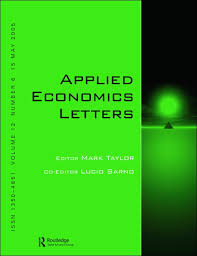
Bank Risk Proxies and the Crisis of 2007/09: A Comparison
Motivated by the variety of bank risk proxies, our analysis reveals that nonperforming assets are a well-suited complement to the Z-score in studies of bank risk. We investigate four proxies for bank risk that are frequently used in the literature. Our analysis shows that non-performing assets are a good proxy for bank risk for two reasons. First, non-performing assets nest the alternative proxies as shown by the high share of variation in non-performing assets explained by the Z-score, loan loss reserves and loan loss provisions. Second, non-performing assets are well-suited to explain bank failures one year ahead. The latter point also holds for the Z-score whereby the information content of the Z-score seems to differ from the other variables. We conclude that non-performing assets are a well-suited complement to the Z-score, which may come with calculation issues regarding the volatility of profitability, in studies of bank risk.





